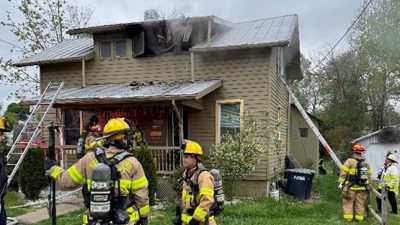
Take for example the results of a recent Quinnipiac University National Poll that asked Americans whether Donald Trump is a good role model for our children. Although overall, 2/3 of Americans say No to that question, 72% of Republicans said that Yes, Trump is a good role model.
How should we understand this Republican affirmation of Trump as a role model?
I’d like for the answer to be that they don’t really mean it, that they recognize that Trump routinely behaves in ways – lying, bullying, boasting, self-aggrandizing, power-grabbing, rule-breaking – that we would hate to see in our children. I hope that their answering “Yes” was for other reasons, having to do with their giving their allegiance – for whatever reasons – to this President.
I’d like for the answer these Republicans give to the pollster’s question to really mean: “No, of course he’s not a good role model. But I like him as my President, and I’m not going to give any answer that will fortify Trump’s enemies –whom I also regard as my enemies – in their attacks on him.”
But I have no evidence for that interpretation.
So I think about the more likely alternative, which is that these Republicans really do think Trump’s a good role model.
Which brings up the question that continually recurs for me regarding the supporters of Donald Trump: do these people simply not see what most Americans – and most of the world – see about Trump or do they see him clearly, but like what others find appalling?
I have come to believe that there are many explanations for Trump’s support because there are different groups of people who support him for different reasons.
For example, some studies have shown that “racial resentments” characterize a large portion of Trump’s base. Other studies have found that “authoritarian” inclinations substantially characterize supporters of Trump.
Both can be true. And for some groups, still other explanations may be more on target.
For example, I’ve come up with one hypothesis that might explain one component of Trump’s support. This hypothesis is about is those white working class, often small-town or rural, people whose economic and social situations have deteriorated over the past generation.
During the campaign, I wondered how can these people believe that Trump will improve their situation? How can they not see that he’s likely just conning them, the way he conned those students at Trump University? And since the election, I’ve wondered: do these people not see that Trump’s policies are only leaving them out in the cold, that he’s eroding their health care coverage, their workplace protections, the air they breathe and the water they drink—all to fatten the already superrich?
In this instance, that recurrent question – do they not see, or do they not feel about what they see as I would expect them to? – takes this form: Is there any way that –though they recognize that Trump will do nothing to improve their lives — they might still like Trump being President?
My hypothesis offers a way that the answer might be yes—i.e. how they might regard Trump as their hero even as they see Trump will do nothing to better their lives.
Here’s how:
This big chunk of Trump supporters seems to come from the same part of the American population whose life-expectancy has been falling (for a couple of decades, especially in Appalachia, the rural South).
The demographers have identified the cause of this drop in life-expectancy in those areas: they’re labeled “deaths of despair.” The three components of these “deaths of despair” are suicide, drug overdoses (the opioid crisis), and alcoholism.
Essentially, three different ways that despairing people are killing themselves.
(As for the reasons for the despair, the experts say, is “a 40-year stagnation of median real wages and a long-term decline in the number of well-paying jobs for those without a bachelor’s degree.” This economic decline has had injurious effects, they say, on family life, and people’s quest for meaning in their lives.)
Which brings us to what I admit is only a hypothesis.
Despair means having no hope. And if one has no hope, one is not looking for improvement in one’s life. But one may be looking for vengeance against those whom one blames for one’s hopeless situation.
So, perhaps these voters are like Sampson in the Bible. Having been blinded by his enemies, the Philistines, Sampson calls out to the Lord for the strength to bring down the great edifice in which a multitude of the Philistines are celebrating. With that strength, he avenges himself in a last action that kills both his enemies and himself.
Some Americans, sunk into despair and yet still filled with rage, may be supporting Donald Trump as the wrecking ball against the American system they feel has betrayed them.
*************************
Andy Schmookler was the 2012 Democratic candidate for Congress in VA-06, and is the author of the website “A Better Human Story” at http://abetterhumanstory.org/










